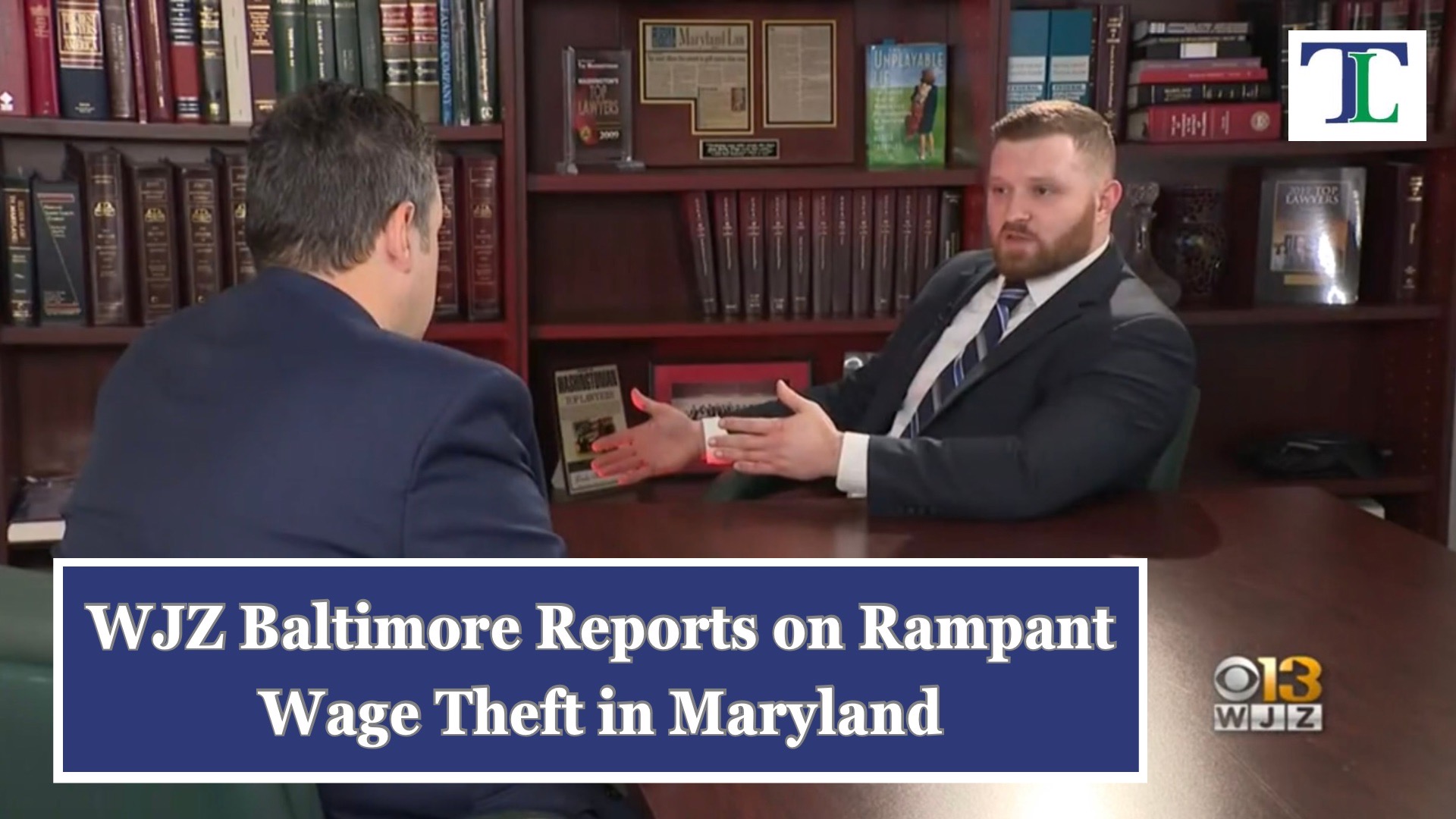Has your employer ever:
- Shorted you on a paycheck
- Bounced a paycheck
- Kept you on call but never paid you for your on-call time
- Paid you less than minimum wage
- Changed your timecard so it appeared you worked fewer hours than you actually did
- Told you you’re not entitled to overtime pay because you’re paid a salary
- Docked your pay for a rule violation
These are just a few of the ways employers withhold wages they are not entitled to, and are all examples of wage theft. A recent investigation by WJZ, CBS’s Baltimore affiliate, found that wage theft is rampant in Maryland.
Since 2009, the Maryland Department of Labor has registered $20,140,568.60 in wage theft claims. The median average amount owed was $934. Of those claims, the DOL recovered $8,346,019.71; however, the official claims vastly undercount the wage theft that occurs in Maryland. This is because many workers are not aware of their rights and may not realize they have been shorted. If they know they have been underpaid, they may be afraid to confront their employer out of fear of retaliation.
Aron Zavaro, a partner at Thatcher Zavaro & Mani, was interviewed and quoted in the interview several times:
“People are definitely afraid, but if you don’t complain,” he said, “all that happens is you’re stuck in this position where you continue to be exploited.” He added that it is illegal for employers to retaliate when workers file wage complaints.
Real examples of wage theft
A private contractor who handled construction projects at Morgan State University was caught requiring his employees to give him a “rebate” from each paycheck. He did this, he says, because he thought he could “be more competitive and make more money.” In addition to wage theft, the contractor’s actions were also criminal and he spent time in jail. The university was not involved, according to WJZ’s investigation.
The contractor later made a video for the Maryland Department of Labor’s Employment Standards Unit in an effort to warn others not to do the same thing.
Wage theft is not just a problem among private employers. Public sector employers have also been found to have violated wage theft laws. For example, in 2021, the Center for Public Integrity investigation found that numerous branches of the U.S. Postal Service were routinely changing workers’ timecards to short them hours or deny them overtime. At least 250 managers at 60 or more post offices were engaged in this scheme. When they were caught, they were rarely disciplined. Often, the wage claims were settled for less than what the USPS owed.
What should I do if I suspect wage theft?
Talk to your employer. It is possible that they have made an error, or oversight. Give them a chance to fix the problem if you can.
If you suspect wage theft or if you have complained about wage theft and are experiencing retaliation, you should consult an attorney to know your rights and discuss your options.
If you are an employer, it is important for your business to know the law and meet your obligations towards your employees.
Click HERE to watch WJZ Baltimore’s interview of partner Aron Zavaro on this important topic.
If you have questions about wage theft, or any issue regarding wage and hour law in Maryland, Virginia, or Washington, DC, please contact Thatcher Zavaro & Mani at 301-850-1246. www.ThatcherLaw.com. Follow us on:

